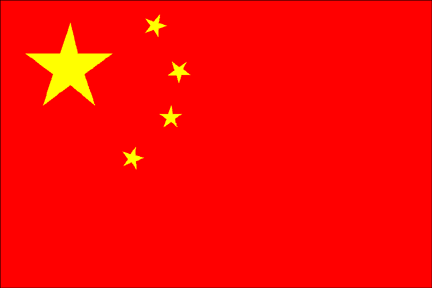



General Staff Department
The General Staff Department carries out staff and operational functions for the PLA and had major responsibility for implementing military modernization plans. Headed by the chief of general staff, the department served as the headquarters for the ground forces and contained directorates for the three other armed services: Air Force, Navy, and Strategic Missile Force.
The General Staff Department included functionally organized subdepartments for artillery, armored units, engineering, operations, training, intelligence, mobilization, surveying, communications, quartermaster services, and politics.
Navy Headquarters controlled the North Sea Fleet, East Sea Fleet, and South Sea Fleet. Air Force Headquarters generally exercised control through the commanders of the seven military regions. Nuclear forces were directly subordinate to the General Staff Department. Conventional main, regional, and militia units were controlled administratively by the military region
commanders, but the General Staff Department in Beijing could assume direct operational control of any main-force unit at will. Thus, broadly speaking, the General Staff Department exercises operational control of the main forces, and the military region commanders controlled the regional forces and, indirectly, the militia.
The post of principal intelligence official in the top leadership of the Chinese military has been taken up by a number of people of several generations, from Li Kenong in the 1950's to Xiong Guangkai today; and their public capacity has always been assistant to the deputy chief of staff or assistant to the chief of staff.
Ever since the CPC officially established the system of "major military regions" for its army in the 1950's, the intelligence agencies inside the Army have, after going through several major evolutions, developed into the present three major military intelligence setups.
- The central level is composed of the Second and Third Departments under the PLA General Staff Headquarters and the Liaison Department under the PLA General Political Department;
- At the major military regions intelligence activities consist of the Second Bureau established at the same level as the Operation Department under the Headquarters, and the Liaison Department established under the Political Department.
- The third system includes a number of communications stations directly established in
the garrison areas of all the major military regions by the Third Department of the PLA General Staff Headquarters.
The Second Bureau under the Headquarters and the Liaison Department under the Political Department of major military regions are only subjected to the "professional leadership" of their "counterpart" units under the Central Military Commission and are still considered the direct subordinate units of the major military region organizationally.
Those entities whose names include the word "institute," all research institutes under the charge of the Second and the Third Departments of the PLA General Staff Headquarters, including other research organs inside the Army, are at least of the establishment size of the full regimental level.
Among the deputy commanders or deputy chiefs of staff of a major military region in China, there is always one who is assigned to take charge of intelligence work, and the
intelligence agencies under his charge are directly affiliated to the headquarters and the political department of the military region.
The Conference on Strengthening Intelligence Work held from 3-18 September 1996 at the Xishan Command Center of the Ministry of State Security and the General Staff Department.
Chi Haotian delivered a report entitled "Strengthen Intelligence Work in a New International Environment To Serve the Cause of Socialist Construction." The report emphasized the need to strengthen the following four aspects of intelligence work:
- Efforts must be made to strengthen understanding of the special nature and role of intelligence work, as well as understanding of the close relationship between strengthening intelligence work on the one hand, and of the four modernizations of the motherland, the reunification of the motherland, and opposition to hegemony and power politics on the other.
- The United States and the West have all along been engaged in infiltration, intervention, sabotage, and intelligence gathering against China on the political, economic, military, and ideological fronts. The response must strengthen the struggle against their infiltration,
intervention, sabotage, and intelligence gathering.
- Consolidating intelligence departments and training a new generation of intelligence personnel who are politically reliable, honest and upright in their ways, and capable of mastering professional skills, the art of struggle, and advanced technologies.
- Strengthening the work of organizing intelligence in two international industrial, commercial, and financial ports -- Hong Kong and Macao.
Although the four aspects emphasized by Chi Haotian appear to be defensive measures,
they are in fact both defensive and offensive in nature.
Sources and Resources
- "Intelligence Background of Zhou Borong, deputy commander of Hong Kong Garrison" by Huang Yung-nien CHIEN SHAO [Hong Kong], 01 April 1996 No 4, pp 48-51 [PRC: Profile of PLA Hong Kong Garrison Intelligence Chief FBIS-CHI-96-083 01 April 1996]
- "Secrets About CPC Spies -- Tens of Thousands of Them Scattered Over 170-Odd Cities Worldwide" by Lo Ping Cheng Ming [Hong Kong ], 1 Jan 97 No 231, pp 6-9 [Journal Discloses `Secrets' About PRC Spy Network FBIS-CHI-97-016 1 Jan 1997]
http://www.fas.org/irp/world/china/pla/gen_staff.htm
Created by John Pike
Maintained by Webmaster
Updated Wednesday, November 26, 1997 5:56:23 PM






